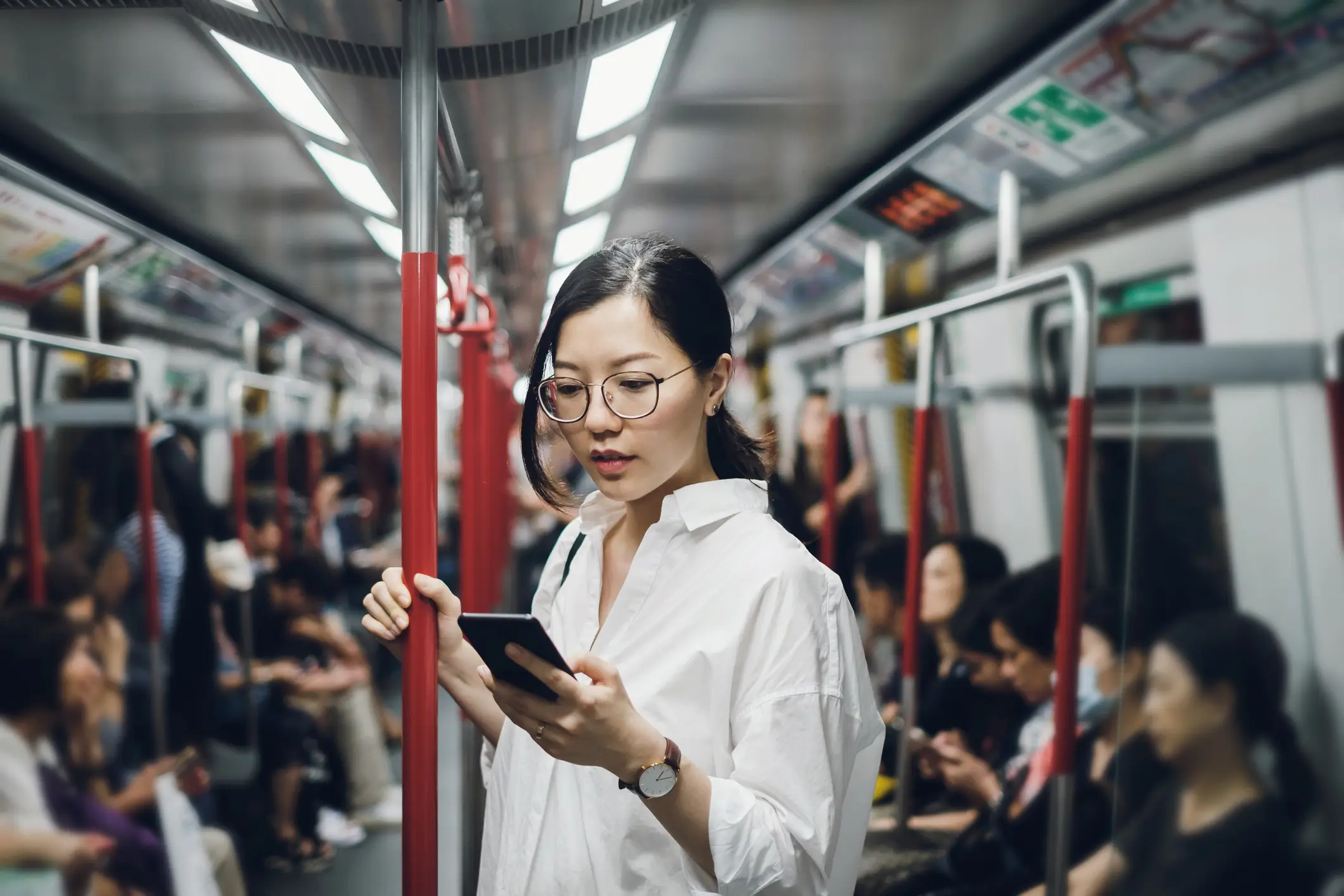
If you've got the kind of boss that emails you outside of office hours, then you've got the perfect excuse to not reply.
When driving to work, you of course won't be looking at your phone to reply to emails, but you might be more tempted to do so while on a train or bus.
As of 2022, around 140 million Americans used public transport to get to work, with the likes of New York City, Washington D.C., and San Francisco being some of the most popular cities for using public transport.

Advert
However, while you might think that answering emails or amending that work document on the train will mean you get ahead of your working day, you could be hindering your job more than helping it.
According to Kaspersky, a cybersecurity company, many people engage in concerning behaviors on their commute that could lead to a data leak or serious breach of privacy for their place of work.
It's said that 66 percent of commuters admitted to writing work emails while on public transport, while an additional 29 percent said they worked on important documents regardless of who was around them.
In regards to phone calls, 35 percent of commuters said they had overheard sensitive business details during phone conversations.

With these worrying figures in mind, David Emm, Principal Security Researcher at Kaspersky, has warned people to steer clear of doing such things as 'safeguarding data in public places is non-negotiable'.
Speaking to the Metro, he said: "Many of us are unwittingly leaving valuable personal breadcrumbs for others to follow during their daily travel to work, including business names, contact details and other sensitive information.
"If you’re handling strategic information during your commute, the impact of a leak could be massive — and potentially easily traceable to those privy to it.
"Whether it’s a financial deal, legal case, or patient data, exposing such details in public could lead to significant consequences for both the business and the individual responsible."

While information like internal processes or casual work discussions may appear less critical, according to Emm these details 'could still be valuable to a targeted attacker looking to gain a foothold in the organisation, just like in phishing'.
He went on to share: "Industries like finance, healthcare, and law have strict policies barring employees from working in unsecured public spaces like trains or cafes, where regulations such as GDPR and FCA guidelines make data protection paramount.
"In these sectors, accessing sensitive information outside secure environments can be a career-ending move, with potential for disciplinary action, legal repercussions, and significant damage to the company."
Topics: News, Life, Technology